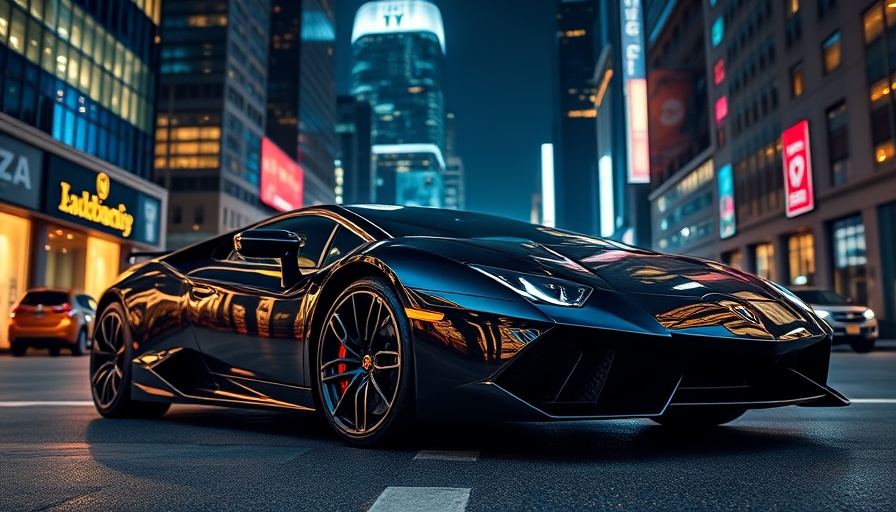
Lamborghini on Economic Edge: How Tariffs Affect the Luxury Market
As the CEO of Lamborghini, Stephan Winkelmann recently voiced concerns about the impact of U.S. tariffs on import cars, particularly how they influence even the wealthiest clientele of his brand. Typically known for their opulent tastes, these consumers, averaging five luxury vehicles in their garages, are reevaluating their purchases amid uncertainty.
The Weight of Tariffs on the High-End Market
The potential instability caused by President Donald Trump's trade policies has left a mark on high-end sales. Despite reports that Lamborghini has seen record-breaking revenues of over €3 billion ($3.5 billion) in 2024, Winkelmann emphasized that fluctuation in tariffs could deter cautious buyers. "Some are waiting because they want to be sure that this is the final number that is going to be in place," he noted, highlighting the dilemma facing affluent customers willing to spend upwards of $400,000 on a luxury vehicle.
Impacts on Production and Pricing Strategy
Winkelmann pointed out that Lamborghini cannot simply relocate production to dodge U.S. tariffs—a strategy suggested by Trump. The cars are crafted in Italy, thus inherently linking their pricing and availability to ongoing trade policy discussions. With a backlog of orders providing temporary relief, the looming tariff rates remain a wild card in Lamborghini’s strategy.
Adapting to New Market Dynamics
Another silver lining for the luxury automaker is its evolving customer base, driven largely by younger, affluent purchasers across global markets. This clientele is diversifying Lamborghini’s portfolio, pushing the average owner’s age below 45. In Asia, buyers average just 30 years old, and many possess multiple vehicles, with some collectors owning as many as ten Lambo models, particularly the high-end Revuelto.
What Lies Ahead for Luxury Vehicles?
The economic landscape remains unpredictable. As Lamborghini navigates these challenges, the luxury market’s response will provide insights into consumer behavior amidst evolving trade policies. The brand's adaptability will be crucial in maintaining its status and appeal in a competitive environment.
Luxury brands like Lamborghini must remain vigilant and proactive in understanding shifts in consumer sentiment, especially as tariffs could lead to more significant implications beyond initial contract agreements. Innovations such as new hybrid models are part of a broader strategy aimed at sustaining interest amid financial uncertainty.
As the luxury car market reacts to economic shifts, the forthcoming months will be pivotal for all players involved. Understanding these movements will not only inform purchasing decisions for consumers but will also shape the automotive industry's trajectory in response to global trade dynamics.
 Add Row
Add Row  Add
Add 



Write A Comment